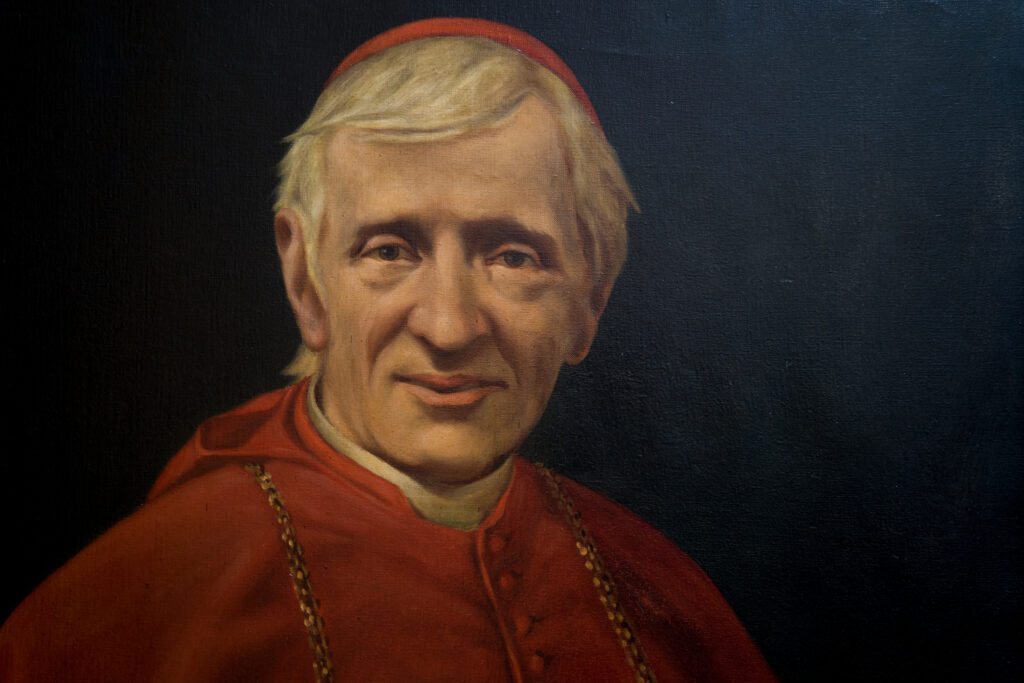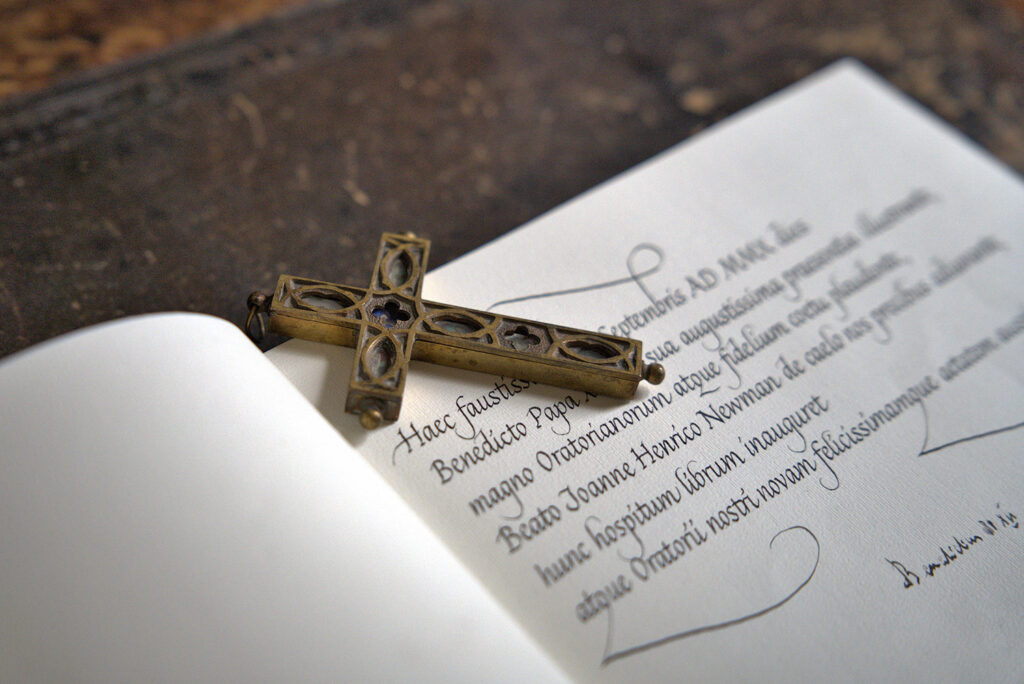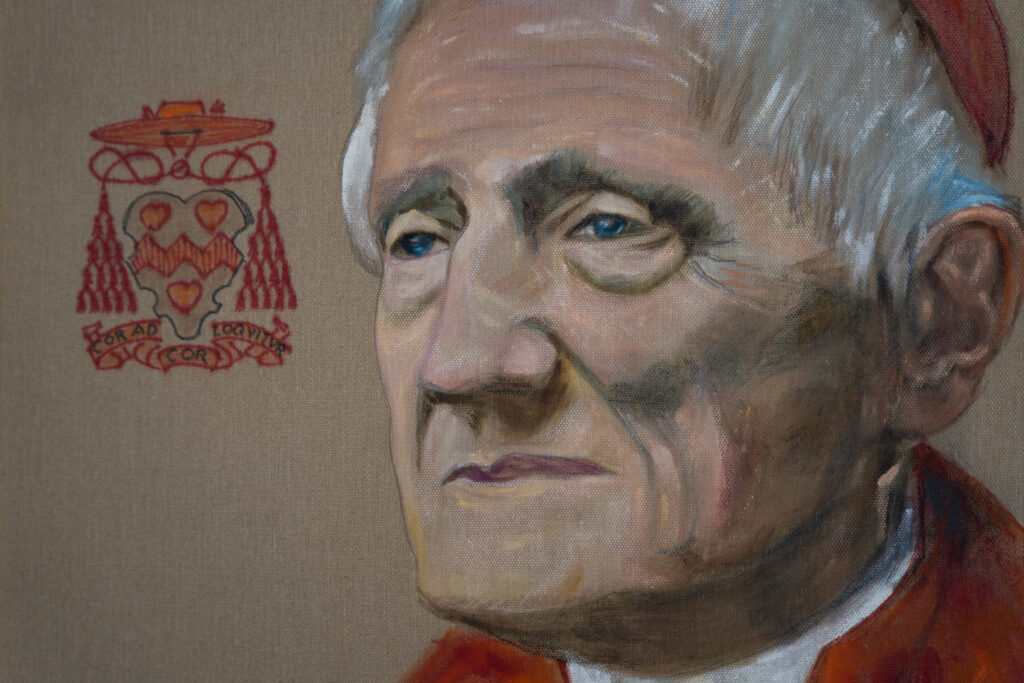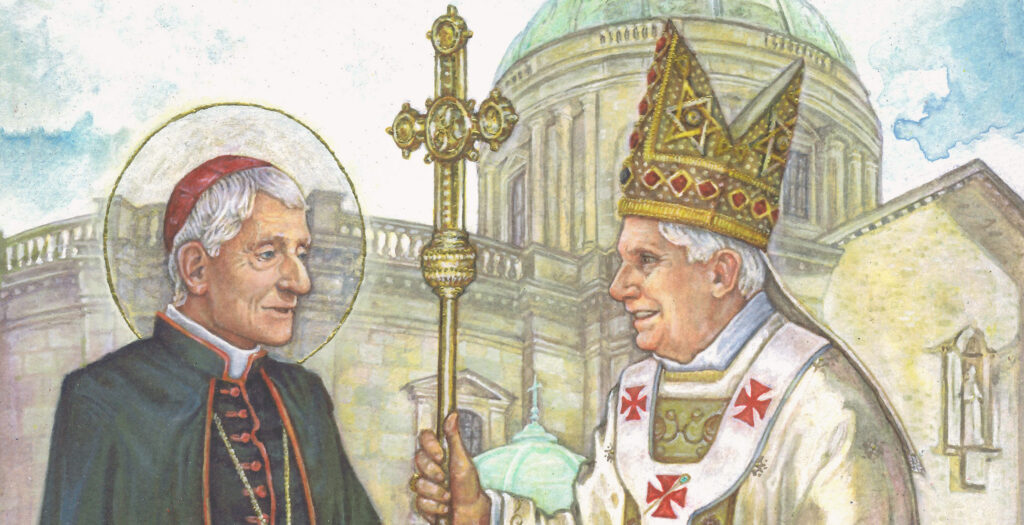
Together with many Newman friends around the world, we are delighted that Pope Leo XIV confirmed on 31st July 2025 that St John Henry Newman will soon be elevated to the rank of Doctor of the Church. Since his canonisation on 13th October 2019, there have been growing calls for the great English theologian to be recognised as a Doctor of the Church. The Bishops’ Conference of England and Wales therefore submitted a request to the Holy See, which was supported by many bishops’ conferences all over the world as well as numerous universities, religious orders and communities, including our Newman Centres. Following an expert opinion by the Dicastery for the Doctrine of the Faith on Newman’s outstanding teaching, a “Positio” was drawn up by the Dicastery for the Causes of Saints, which was submitted to a group of theologians and, a few weeks ago, to all members of the same Dicastery. The Holy Father has now confirmed their positive vote and declared that Newman will soon be included in the ranks of the Doctors of the Church. Newman will thus become the 38th Doctor of the Church.

The requirements for a saint to be declared a Doctor of the Church are sanctity of life (“sanctitas vitae”) and outstanding importance of their teaching (“eminentia doctrinae”). John Henry Newman (1801-1890) is an extraordinary saint who has already brought light to many people through his life. His inner journey is as exciting as a thriller: after his first conversion and his studies, he became an Anglican clergyman, professor at Oxford, preacher and companion to many people. Together with other professors, he sought to renew the Anglican State Church in the spirit of the Church Fathers, through the writings of what became known as the “Oxford Movement”. After a long struggle, he was received into the Catholic Church – at the time a tiny and publicly despised group in England – in Littlemore in 1845 by Fr. Dominic Barberi, CP. After his ordination in Rome in 1847 to the Catholic Priesthood, he founded the first Oratory in Birmingham. He worked in parish ministry, founded a school and a university, and wrote numerous works on contemporary issues. He was committed to the promotion of the laity and accompanied countless people in their faith journey. He was often misunderstood and even suspected of heresy because he thought about new questions and was far ahead of his time. When Pope Leo XIII elevated him to cardinal in 1879, he was finally publicly vindicated. Newman was a man of God, a courageous proclaimer of the truth, a gifted educator, an outstanding theologian and writer.
Newman’s profound, powerful teaching, deeply rooted in Scripture and the Church Fathers, was rediscovered in the 20th century by great theologians such as Romano Guardini, Erich Przywara, Edith Stein, Theodor Haecker, Henri de Lubac and Yves Congar, and finally recognised for its significance by the popes. “One day Newman will be a Doctor of the Church,” Pope Pius XII already said to Jean Guitton. Pope John XXIII quoted Newman in his inaugural encyclical of 29th June 1959 and referred to his importance in the struggle for Christian unity. Pope Paul VI said in an address on 7th April 1975 that Newman is becoming “an ever brighter beacon for all who are seeking an informed orientation and sure guidance amid the uncertainties of the modern world – a world which he himself prophetically foresaw.” During a meeting with friends of Newman on 27th April 1990, Pope John Paul II stated: “The mystery of the Church always remained the great love of John Henry Newman’s life.” Pope Benedict XVI raised Newman to the honours of the altar in England on 19th September 2010. At a prayer vigil on the eve of the beatification, Benedict XVI said: “in our day, when an intellectual and moral relativism threatens to sap the very foundations of our society, Newman reminds us that, as men and women made in the image and likeness of God, we were created to know the truth, to find in that truth our ultimate freedom and the fulfilment of our deepest human aspirations.” Pope Francis also expressed his appreciation for the English cardinal in important documents and repeatedly referred to the relevance of his thinking.

In which areas is Newman’s teaching of eminent importance? Important is his insight that Christianity is a living truth that has its origin in God and unfolds organically in the community of the Church throughout history. His remarks on the development of doctrine and on the criteria for distinguishing between genuine and false developments in doctrine are ground-breaking and can also provide guidance in current debates.
Newman was firmly convinced that the transmission of the faith is entrusted to the whole Church. He therefore emphasised that, in addition to the clear proclamation of the faith by pastors, the intellectual service of theologians and the courageous witness of the laity are also necessary. His thoughts on the consensus of the faithful remain inspiring, especially in view of the new collaboration of pastors and laity he longed for and the discussions about the rightful inclusion of all the faithful in the life and mission of the ecclesial communion.
Newman impressively described the path of his own conversion in Apologia pro vita sua. This classic work of modern literature, sometimes compared to the Confessions of St Augustine, also has lasting significance. For faith in God and love for the Church are conveyed above all through personal witness. Furthermore, openness to conversion, prayer and the search for truth, all of which Newman clearly and most brilliantly exemplified, are fundamental principles for the ecumenical movement.
Newman can also help us to grasp the genuine meaning of conscience and to distinguish it from one-sided or false conceptions. His teaching on this central theme emphasises the dignity and primacy of conscience, but at the same time the indispensable importance of the Church and the Pope. For Newman, conscience is the advocate of truth in the heart of man, the “aboriginal vicar of Christ”: a fascinating view.
Newman’s reflections on faith and reason, his efforts to promote a holistic education in schools and universities, his teaching on Mary, the second Eve, inspired by the Fathers of the Church, his lectures on justification and his personalistic eschatology in “The Dream of Gerontius” also remain highly relevant today.
Throughout his life, Newman strove to reject liberalism in religion and to make Christianity understandable as truth. His sermons, novels, letters and prayers show that he carried out this service to the truth with great sensitivity and sincere love. Cor ad cor loquitur: In keeping with this motto, which he adopted as a cardinal, he turned to the hearts of his fellow human beings and tried to address them in a personal way, leading them closer to God. Such a proclamation can still touch people today.

“The characteristic of the great doctor of the Church, it seems to me, is that he teaches not only through his thought and speech, but also by his life, because within him thought and life are interpenetrated and defined. If this is so, then Newman belongs to the great teachers of the Church, because he both touches our hearts and enlightens our thinking.” With these words, Cardinal Joseph Ratzinger expressed in 1990 what has now been officially confirmed: Newman’s life and thought are of eminent importance. He will soon be counted among the Doctors of the Church. We are deeply grateful that our Newman Centre has been able to contribute to the promotion and dissemination of Newman’s teaching. We are convinced that Newman and his teachings will be a shining light in the darkness of our times.
Fr. Hermann Geissler FSO
